
We’re excited to hear your project.
Let’s collaborate!

Overwhelmed with options?
Are you building your first (e-commerce) headless CMS and you don't know what headless CMS platform to choose?
What are the best headless CMS in 2020, so you can at least narrow down your choices and start... somewhere?
Which system matches most of your feature requirements?
Here's a top 10:
Relax, I won't bore you with too many details — we already have an in-depth post on the differences between headless and traditional CMS.
So, if we were to sum up the concept in just a few words, we could say that:
A headless content management system is an architecture where content is separated from the presentation layer (the client-side front-end).
Meaning that you get to create, store, and edit "raw" content (with no design or layout) in the backend and deliver it wherever needed —wearable, mobile app, website — via API.
In short, what you get in a headless architecture is:
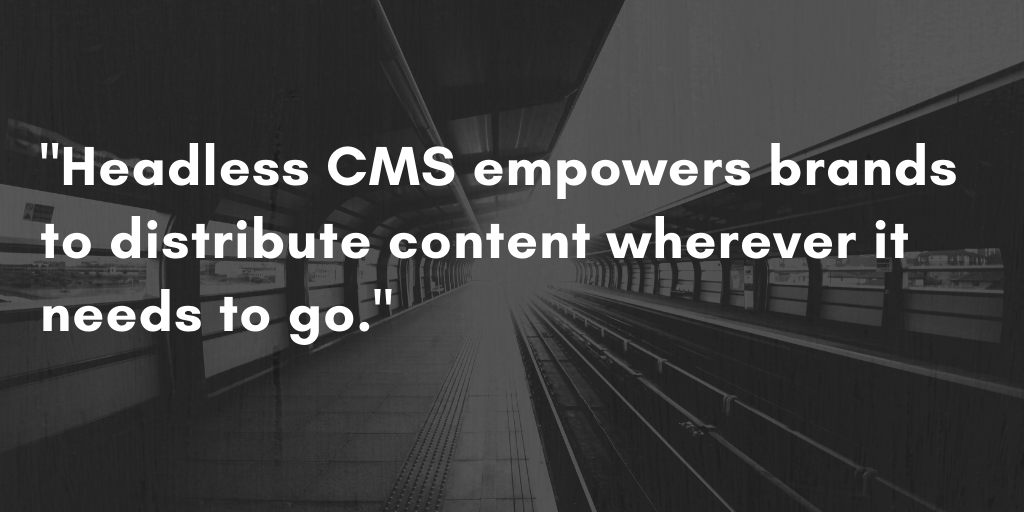
Source: Zesty.io
As for the "head" that serves your content to the end-user :
Headless CMS vs decoupled CMS: what's the difference? And why headless over decoupled?
The role that the API plays…
That's what makes the difference (and why you'd want to go for a headless approach):
If, in a decoupled architecture, the API plays the role of an intermediary between back-end and front end, in a headless architecture the API can be used by any of the front-end portions for pulling data.
In other words, a decoupled CMS does come with a built-in front-end delivery layer, that you can rely on, but a headless approach is an API-driven content repository.
Which gives you more flexibility for delivering content to any type of display layer.
… to multiple "heads".
You're free to distribute it wherever it needs to get displayed.
Before I "divulge" the best headless CMS in 2020 to you, here's a shortlist of the key advantages of using a headless CMS software:
How do you know for sure that you need to adopt this approach?
You know it because your scenario describes one of the following use cases for headless CMS:
"Which CMS should I use?" you wonder.
"The one that meets most of your requirements…"
So, you should start by pinning them down. What features are you looking for in a CMS?
Maybe you need a system that should:
What are the features that your project couldn't live without?
Now, with that list of "mandatory" features at hand, just drill down through your top headless CMS options in 2020.
Here they are:
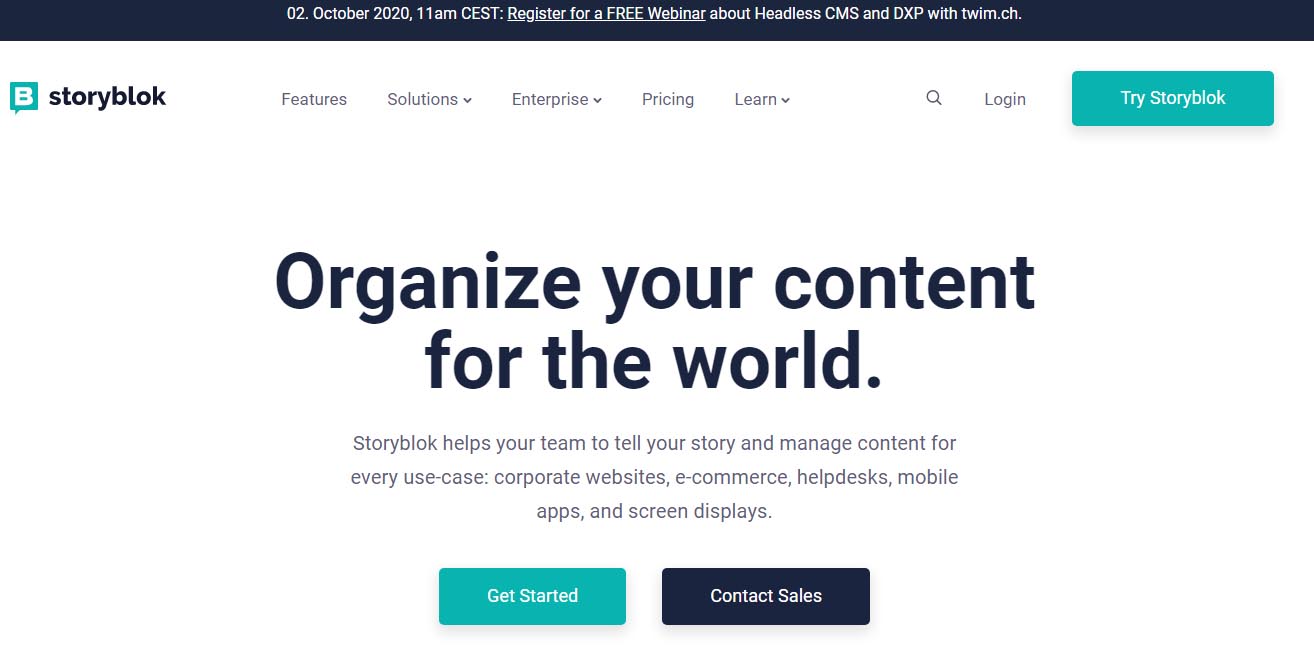
A purely headless CMS that ships with a visual editor, as well.
Why would you go for Storyblok? What makes it one of the best headless CMS in 2020?
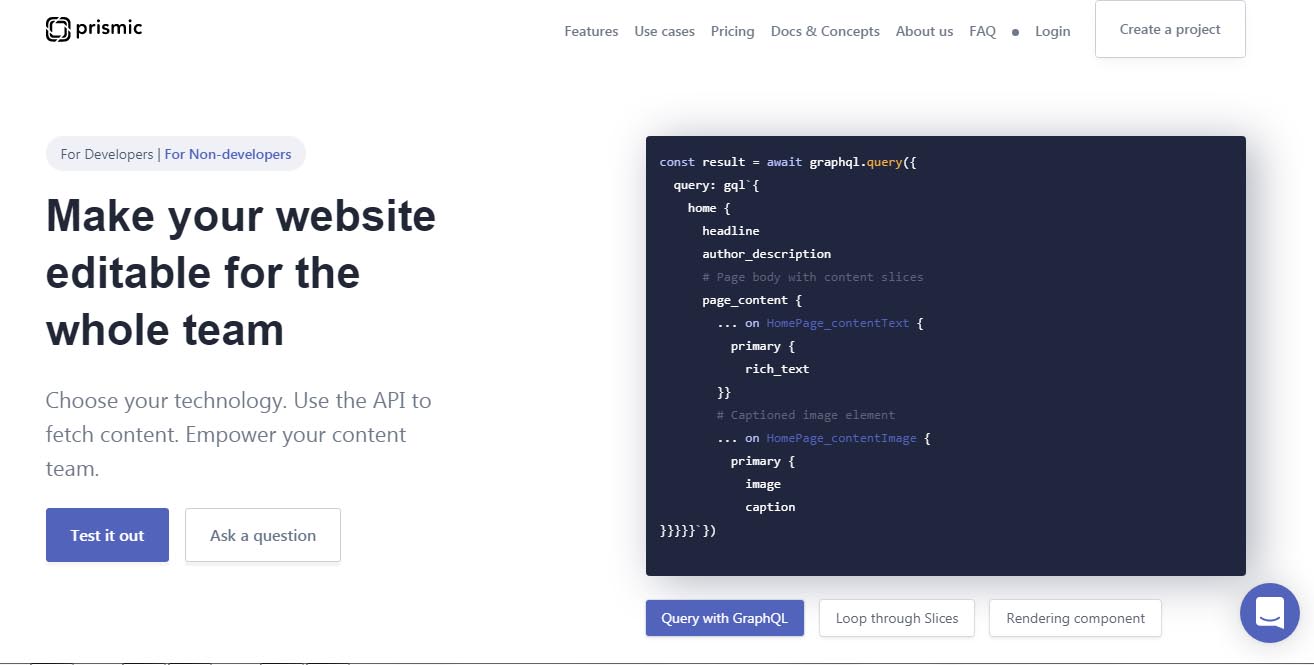
Its major selling point?
It allows you to choose your own language, framework, technology…
And these are the 3 good reasons to go with Prismic as your headless CMS:
Another great option is to exploit Drupal's headless capabilities and pair them with the JavaScript framework of your choice.
Here are some of the best reasons why you'd use a Drupal 8 API-first architecture:
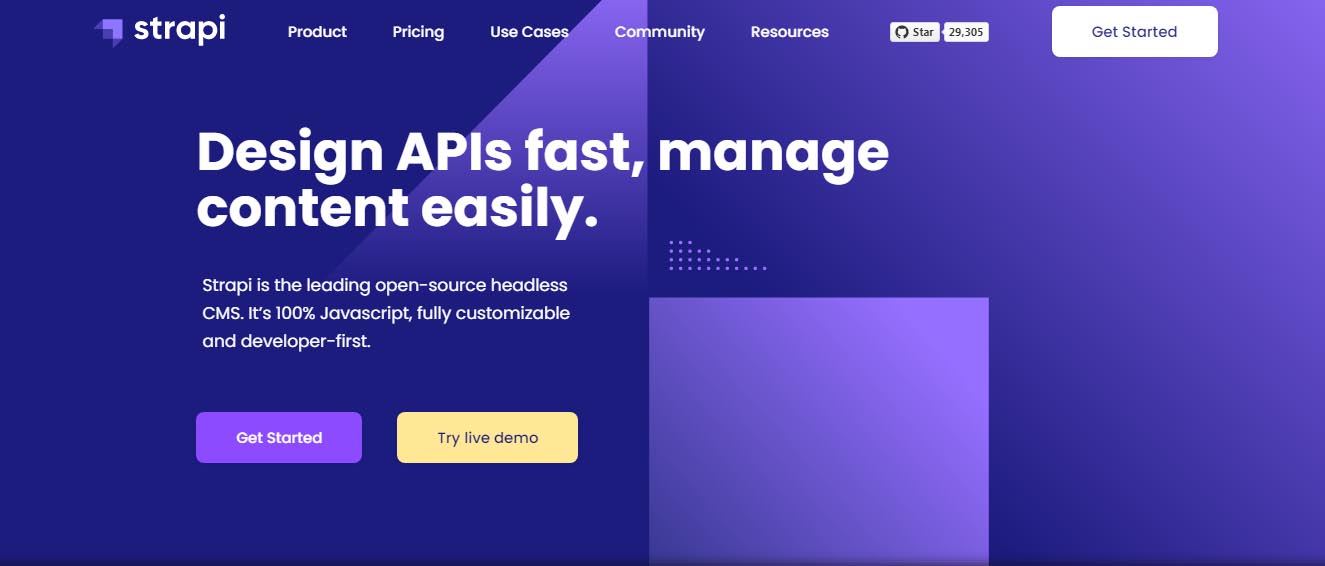
It's an open-source Node.js headless CMS, a "host it yourself" one, that allows you to build Node.js apps in… minutes.
Why would you use it?
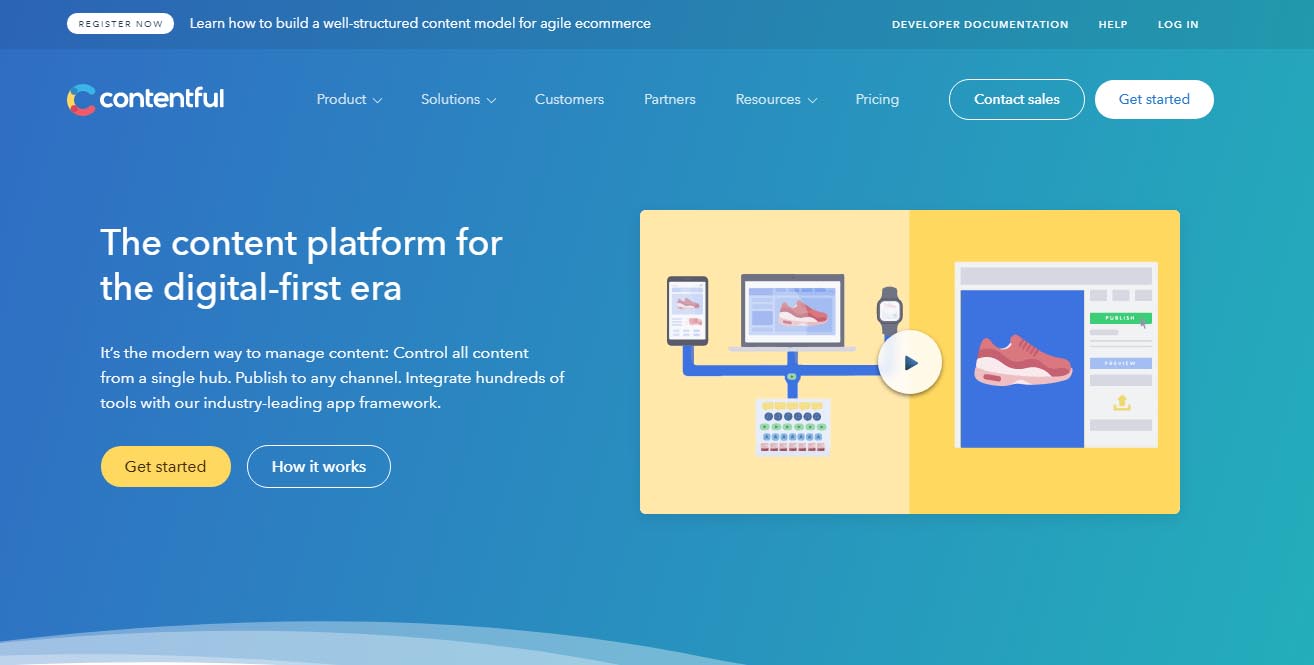
Looking for a platform-agnostic solution?
A… content delivery network that would enable your development team to manage and distribute (and reuse) content to multiple channels?
Then this is the API-driven headless CMS you're looking for.
Here are 6 other reasons why you'd want to put Contentful on your shortlist:
Good to know! There's even a Shopify extension available. What it does is connect your online store to your content, stored in Contentful.
And if you'll need help with building, fine-tuning, and integrating your content hub, we're ready to tweak Contentful to your needs.
END of Part 1!
Stay tuned, for there are 5 more candidates for the title of "the best headless CMS in 2020" waiting in line.
Image by Couleur from Pixabay

We’re excited to hear your project.
Let’s collaborate!